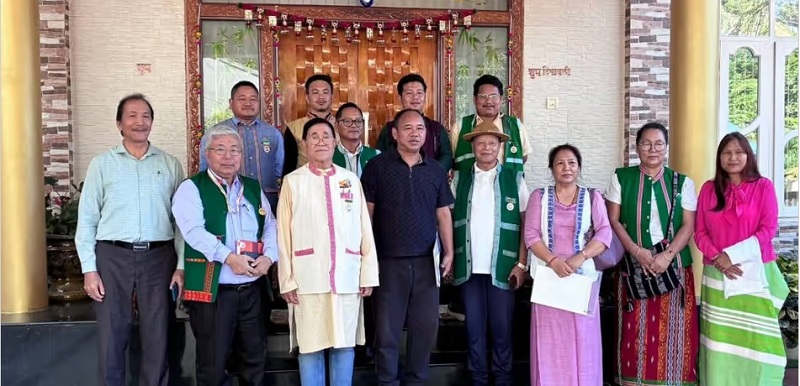Itanagar: A delegation from the Indigenous Faith and Cultural Society of Arunachal Pradesh (IFCSAP) met Home Minister Mama Natung, urging the immediate implementation of the Arunachal Pradesh Freedom of Religion Act, 1978 (APFRA).
Led by President Emi Rumi, General Secretary Maya Murtem, Youth Wing President Radh Taba, and Secretary Rikar Dini, the delegation submitted a memorandum pressing for the swift enforcement of the law.
They asserted that implementing APFRA is crucial to safeguard the indigenous faiths, cultures, and tribal identity of Arunachal Pradesh.
The delegation voiced concern over the growing external influences, cautioning that the tribal heritage of the state is at risk of cultural dilution without adequate legal safeguards.
They emphasized that the APFRA serves as a crucial mechanism to protect and preserve the state’s indigenous faiths and traditions.
Reaffirming its mission, IFCSAP stated that it remains committed to protecting the indigenous spiritual traditions that have long shaped the social and cultural foundation of the state.
Minister Mama Natung, who also heads the Departments of Indigenous Affairs and Water Supply, heard the delegation’s concerns and affirmed the importance of safeguarding Arunachal Pradesh’s cultural identity and heritage.
The Arunachal Pradesh Freedom of Religion Act (APFRA), 1978, is a law to prohibit religious conversions by force, inducement, or fraud, aiming to protect the state’s indigenous cultures and traditions.
Despite its enactment, it has remained largely unimplemented due to the lack of necessary rules for its implementation.
ALSO READ: Arunachal CM explores higher education and disaster management initiatives in Tokyo
Indigenous faith and cultural organizations have been actively campaigning for the Act’s enforcement, arguing it is crucial to protect their traditions from being diluted due to increasing religious conversions.
Some groups, however, have opposed the Act, calling it “unconstitutional” and a potential tool for religious discrimination that could threaten the state’s secular fabric and fundamental rights.















